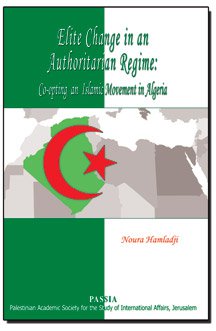Elite Change in an Authoritarian Regime: Co-opting an Islamic Movement in Algeria
By focusing on the emergence of an Islamist elite in Algeria, this paper identifies the conditions under which co-optation processes stabilize authoritarian regimes. It first provides an empirical assessment on the presence of MSP-Hamas elite in state institutions, which reveals that their co-optation is symbolic in terms of power sharing. This in turn brings about the question of what were the expectations of the actors involved in the co-optation process. While MSP-Hamas leaders expected to strengthen their party in order to take over power, it appears that they failed in their attempts to gain more influence in the decision-making process. The analysis presented here shows that it is the very conditions under which this elite was co-opted that precluded it to undermine the authoritarian incumbents' hold on power.

